Foreign Relations
Beginner
Putin’s World: Russia Against the West and with the Rest
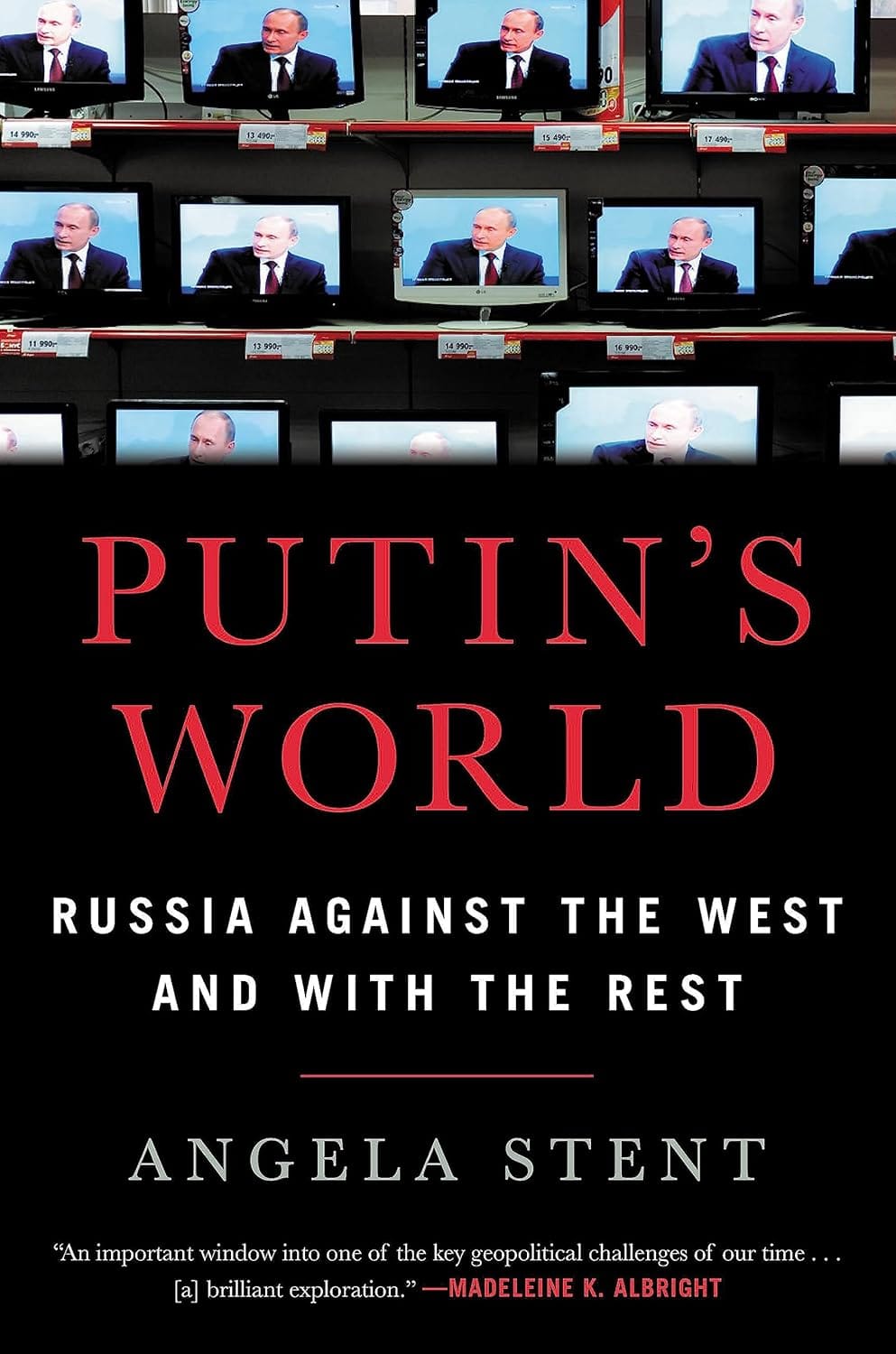
This book provides a high level analysis and overview of Vladimir Putin's geopolitical strategy and of Russia's relationship with the world. The author explores Russia’s historical perspective, its rivalry with the West, and its alliances with other global powers.
It additionally looks at how Putin has reasserted Russian influence through military actions, energy politics, and diplomatic maneuvers. The book also explains Russia’s interactions with countries like China, the Middle East, and former Soviet states, offering a broad understanding of Russia’s modern foreign policy.
The book is a good starting point for people new to Russian politics and Russian affairs because it presents complex geopolitical topics in a clear and accessible manner. It provides essential historical background without overwhelming the reader and maintains an objective perspective.
Should We Fear Russia?
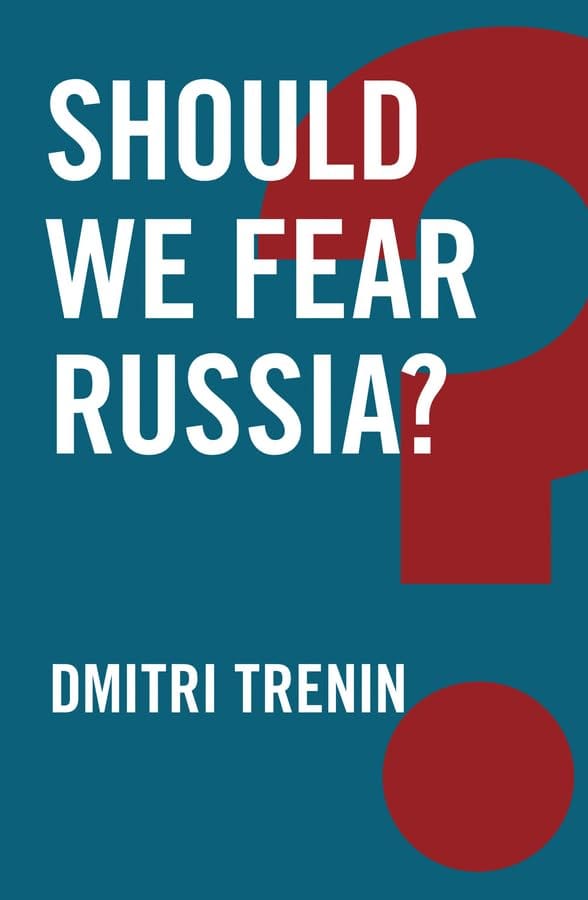
This book specifically focuses on Russia’s geopolitical strategy and its often tense relationship with the West. Trenin tries to challenge Western narratives that portray Russia as a growing threat, arguing that while Russia is assertive in defending its interests, it does not seek direct confrontation. He provides insights into Russia’s historical perspective, military actions, and foreign policy choices, explaining how Moscow views its role in a rapidly changing world order.
Please note: The author of the book isn't uncontroversial. His view have significantly shifted towards a pro-Russian point of view in the past couple of years. Keep this in mind while reading the book.
Russia Resurrected: Its Power and Purpose in a New Global Order
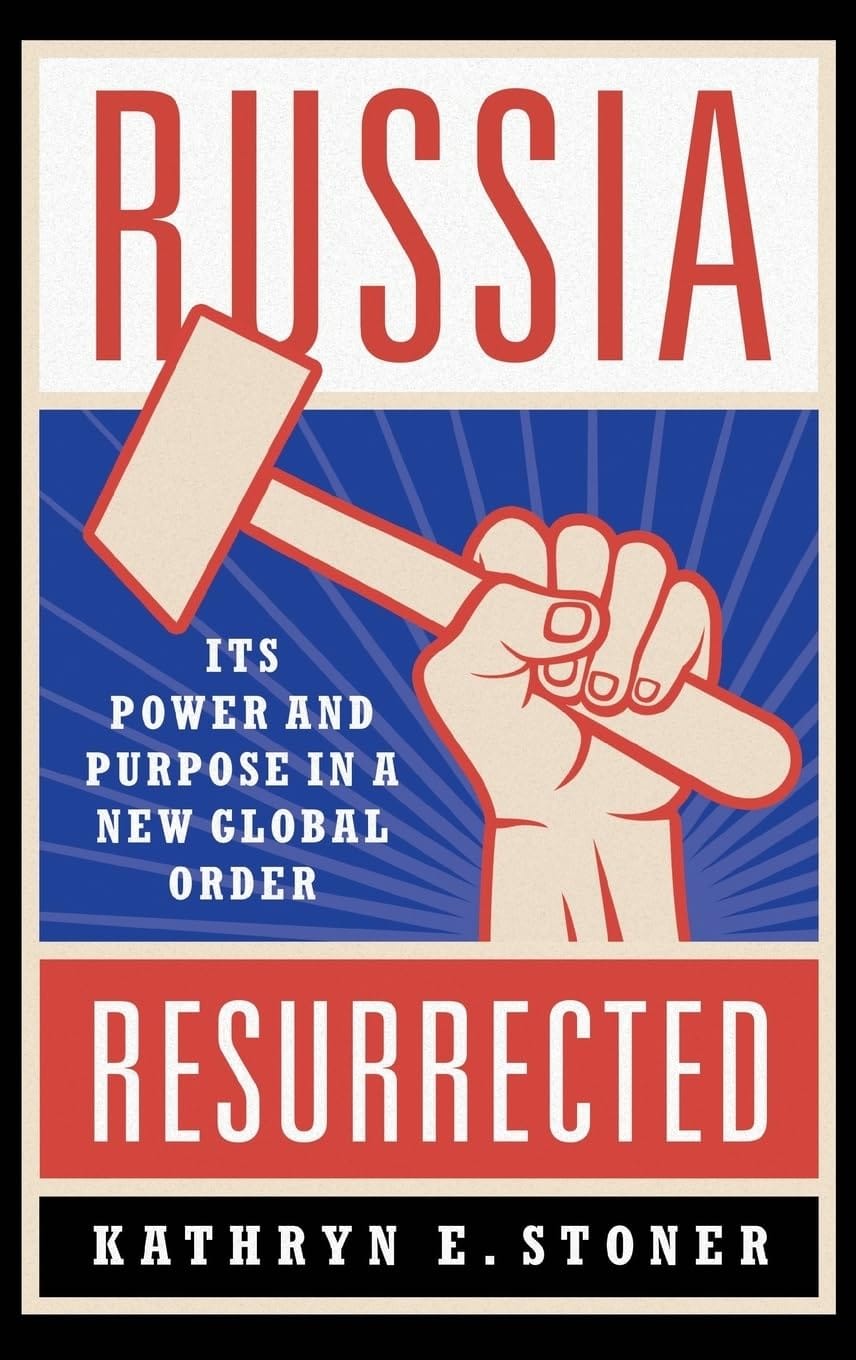
This book takes a look at and challenges the notion that Russia is merely a declining power and instead argues that it remains a significant force in global politics. It examines how Russia exerts influence beyond military might, using economic tools, cyber capabilities, and strategic partnerships to shape international affairs.
The author especially explores Russia’s role in regions such as the Middle East, Africa, and Latin America, demonstrating how Moscow adapts to geopolitical shifts. By analyzing Russia’s domestic and foreign policies, the book provides a comprehensive look at how the country has managed to maintain and even expand its global relevance despite economic and political challenges.
The Road to Unfreedom: Russia, Europe, America
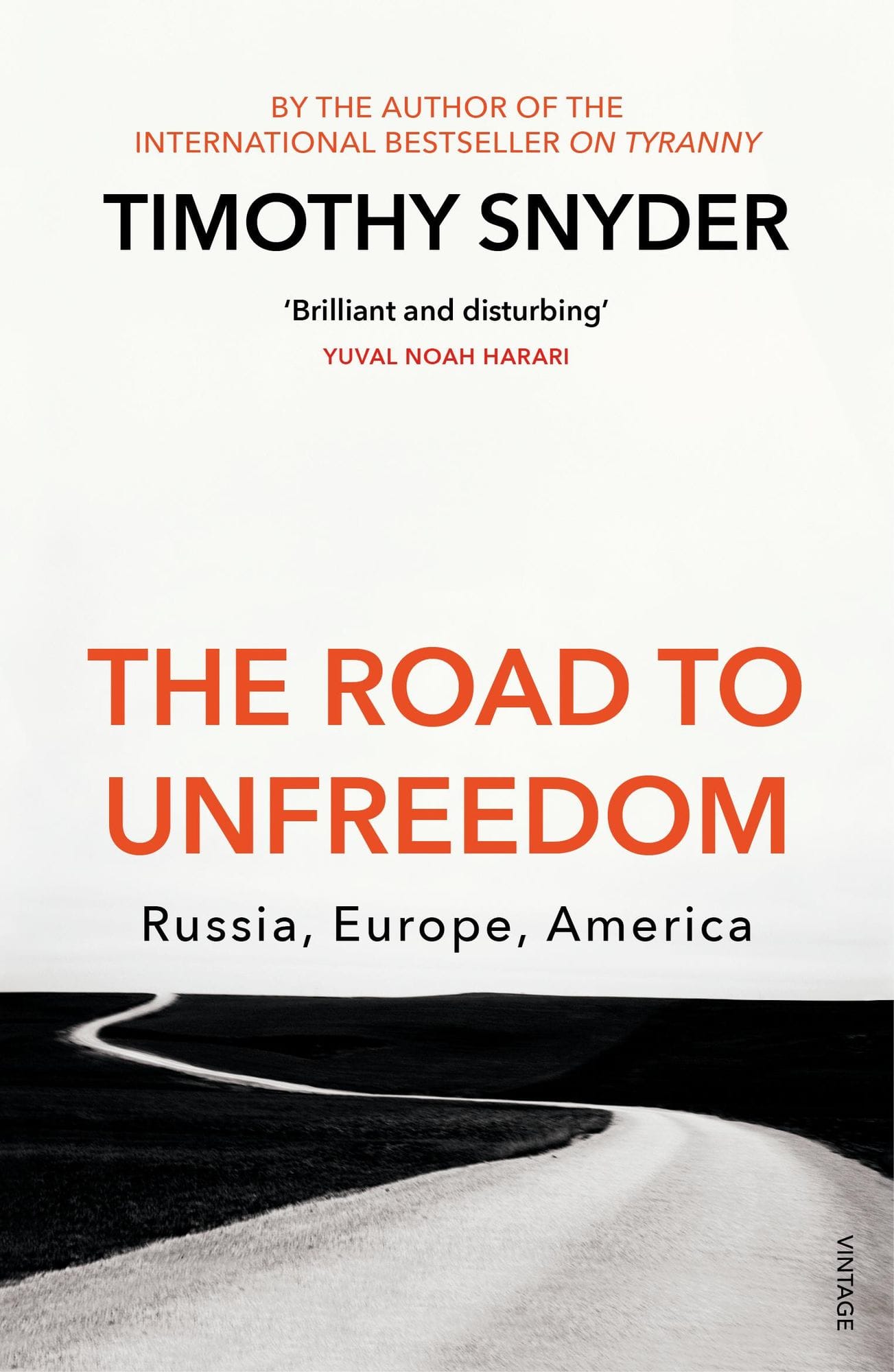
In "The Road to Unfreedom: Russia, Europe, America", historian Timothy Snyder examines the ideological underpinnings and political maneuvers that have propelled the rise of authoritarianism in the West, with particular focus on Russia’s influence under Vladimir Putin.
The author explores how carefully cultivated myths, manipulative propaganda, and strategic interventions in foreign elections erode democratic institutions and spread a worldview he calls the “politics of eternity.”
By dissecting historical precedents and revealing the modern techniques of disinformation, this book helps with understanding the fragile nature of modern democracies and how our current political climate is easily influenced at a massive scale.
What differentiates this book from a lot of others dealing with the topic of disinformation is that it's not overly focusing on the 2016 elections in the United States (or other events that have been talked and written about a tad bit too much in recent years), instead focusing more on the underlying mechanisms - with a specific focus on Russia and how their political operators .. well, operate.
Intermediate
Russia’s Foreign Policy: The Return of Great Power Politics
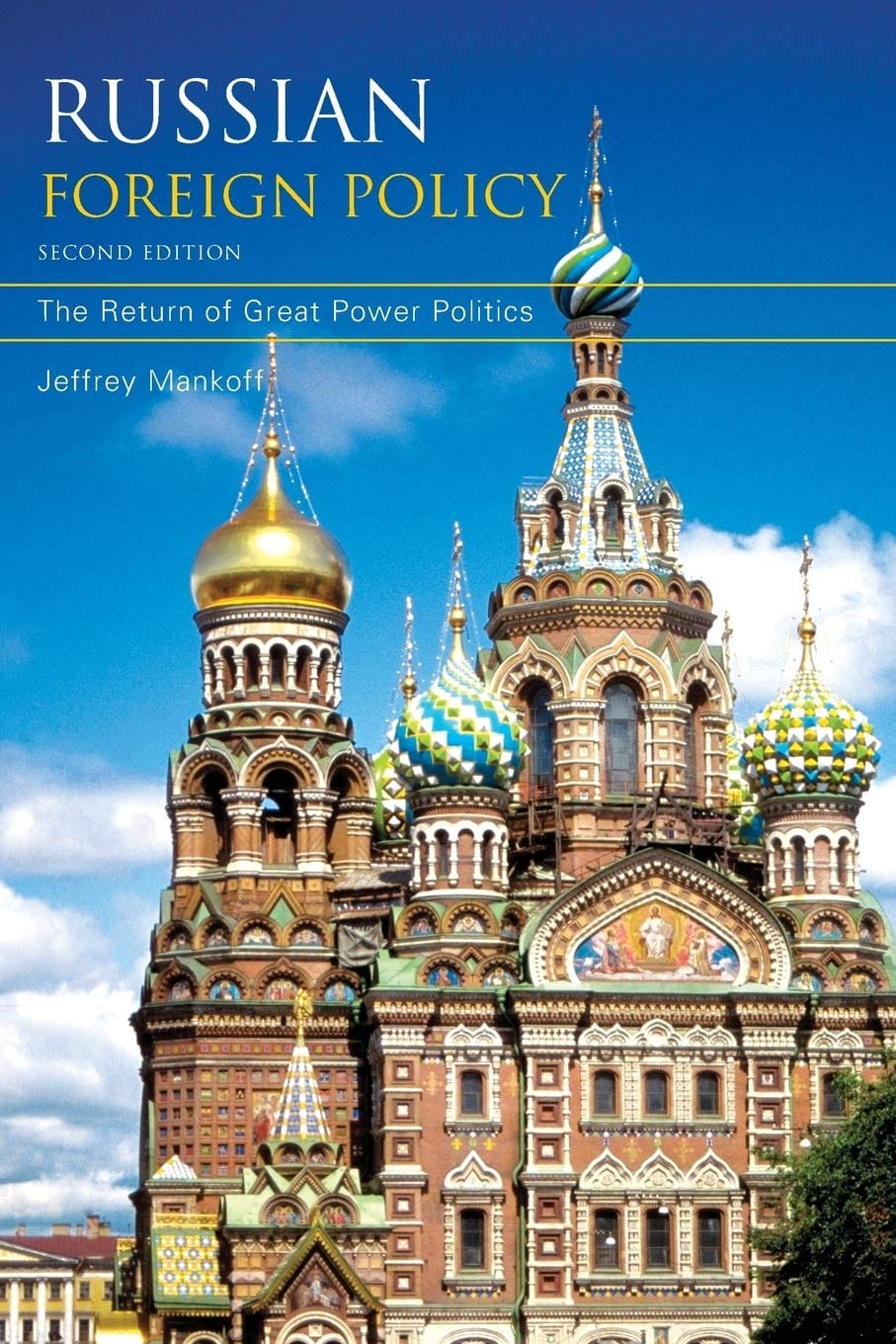
Jeffrey Mankoff’s book provides a thorough analysis of Russia’s foreign policy, explaining how the country has reasserted itself as a global power since the end of the Cold War. He explores the historical foundations of Russia’s international strategy, its relationships with the West, and its ambitions in regions like the former Soviet republics, the Middle East, and Asia.
The book examines key moments in Russian foreign policy, such as the war in Georgia, energy politics, and military interventions, to highlight Moscow’s strategic goals and challenges. The book ultimately argues that Russia sees itself as a major player in global affairs and seeks to shape the international order to reflect its interests.
It's a relatively accessible read, and you can theoretically even read this as your first book in order to get an excellent basic understanding of Russian foreign policy. But you are likely to get even more out of it if you have a solid foundational knowledge.
Russia and the Idea of Europe: A Study in Identity and International Relations
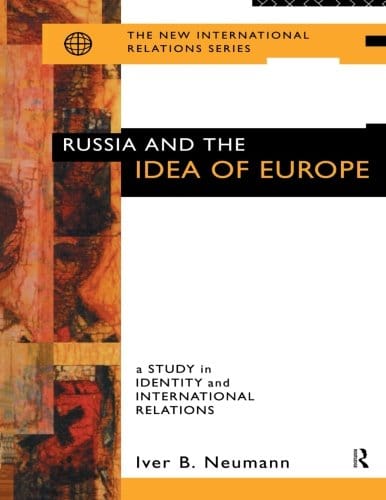
This book explores Russia’s complex and evolving relationship with Europe through the lens of identity and international relations. Rather than focusing solely on politics and diplomacy, Neumann delves into how Russia has historically defined itself in relation to Europe, sometimes seeing itself as a part of European civilization and at other times as a distinct, even oppositional, force.
He examines how Russian elites and intellectuals have shaped national identity over the centuries, influencing foreign policy and geopolitical decisions. Admittedly, this book isn't solely about politics or foreign policy. But by analyzing cultural, historical, and ideological narratives, Neumann offers a deeper understanding of how Russia perceives Europe and how this perception impacts its global strategy.
Imperial Gamble: Putin, Ukraine, and the New Cold War
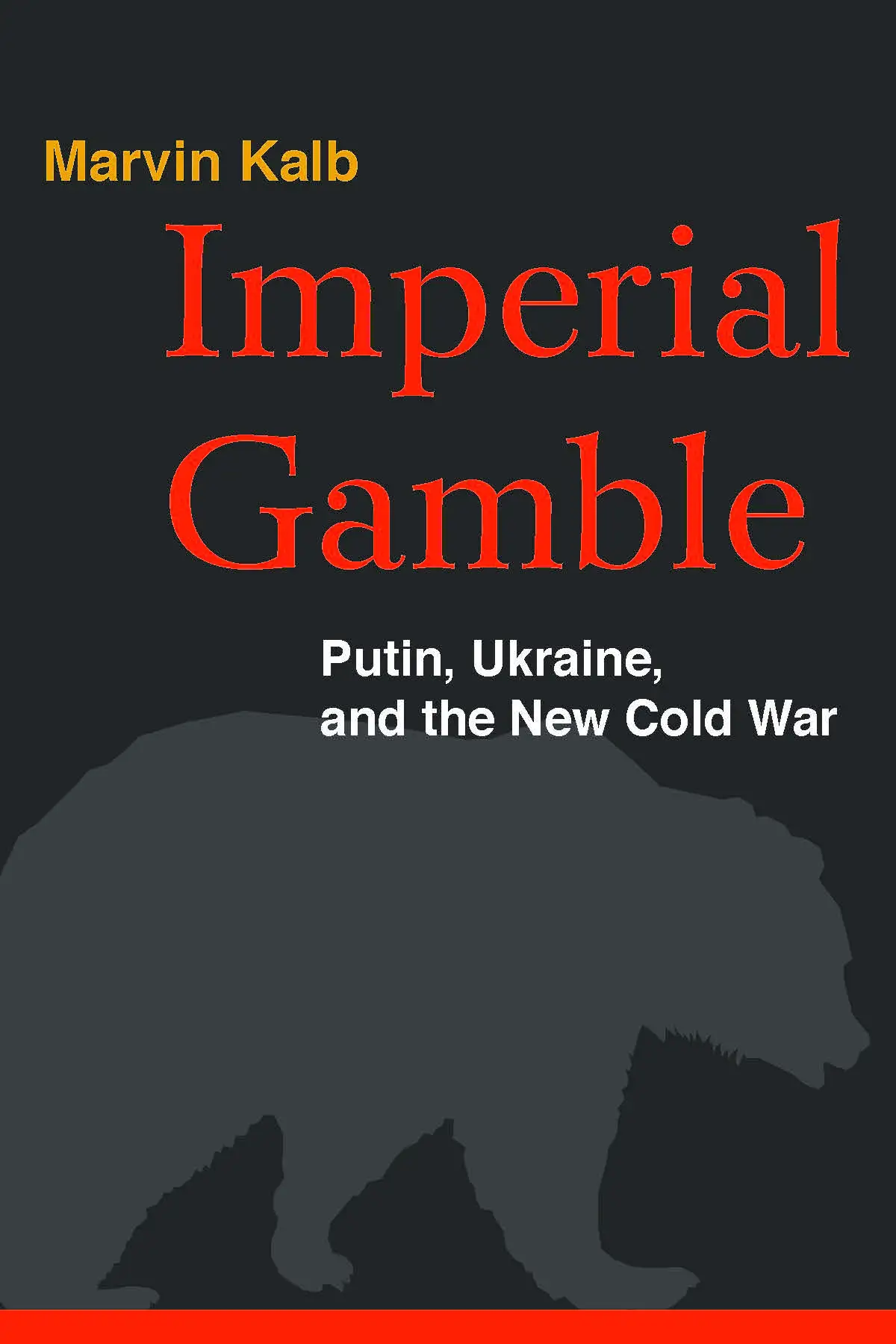
Imperial Gamble provides a historical and political analysis of Russia’s annexation of Crimea in 2014 and its broader conflict with Ukraine. The book traces the deep historical roots of Russian-Ukrainian relations, highlighting how Ukraine’s identity has long been contested between East and West.
Kalb examines Vladimir Putin’s motivations for intervening in Ukraine, linking them to Russian nationalism, historical grievances, and a desire to reassert Russia’s influence in the post-Soviet space. In order to do so the box mixes historical insight and contemporary political analysis - which is why it's considered Intermediate here, given that it requires some prior knowledge of Russian and Ukrainian history to fully appreciate the arguments it makes.
Advanced
Russia and the New World Disorder
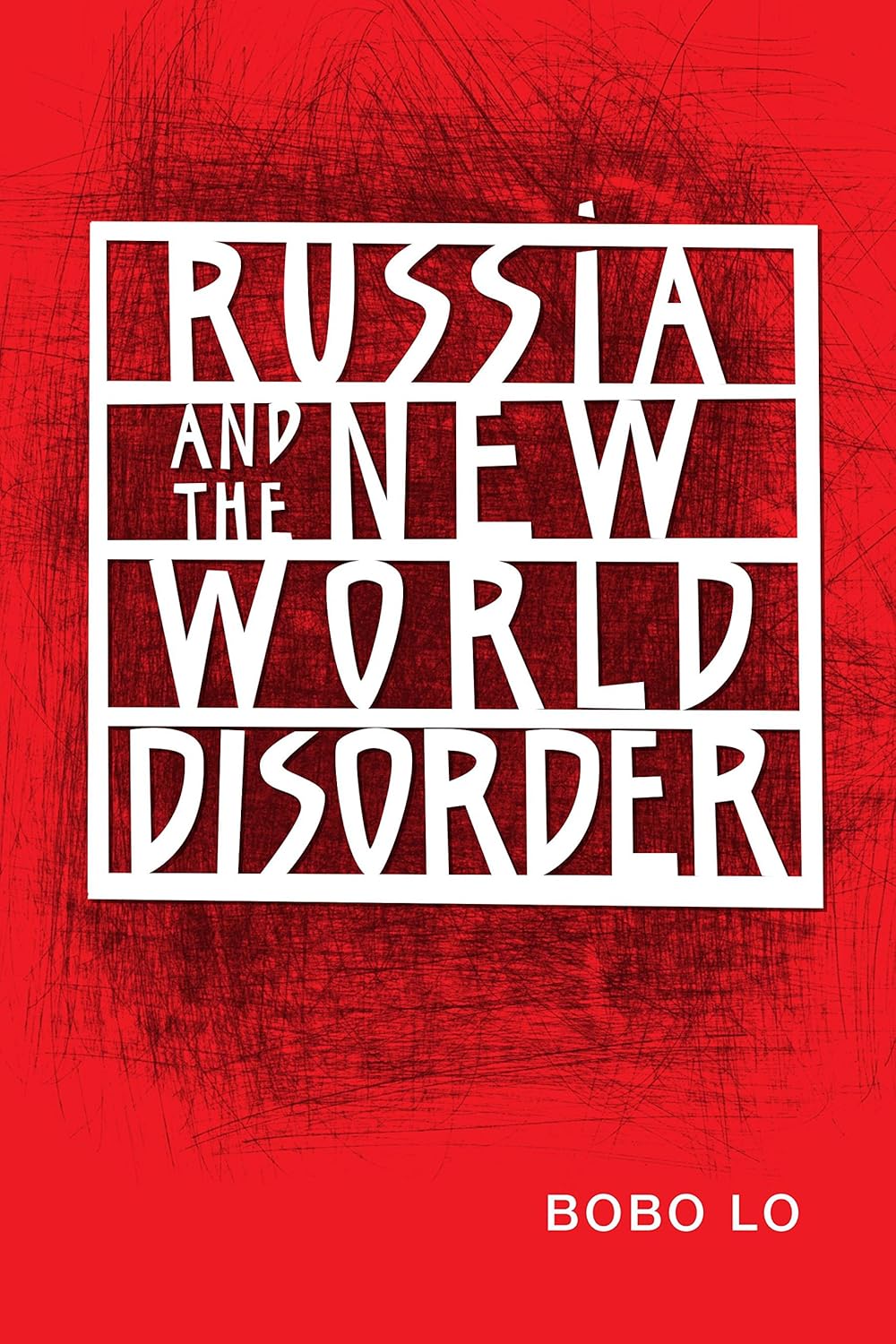
This book provides an in-depth analysis of Russia’s foreign policy in the rapidly changing global landscape. Bobo Lo argues that while Russia seeks to project itself as a great power, its actions are often reactive rather than part of a coherent long-term strategy. It also explores Russia’s relations with major players like the United States, China, and the European Union, as well as its interventions in conflicts such as Ukraine and Syria.
Ultimately, this work challenges the idea that Russia is shaping the new world order, suggesting instead that Moscow is struggling to adapt to global shifts. By examining Russia’s strategic ambitions, economic constraints, and ideological motivations, Russia and the New World Disorder tries to offer a nuanced understanding of how Russia fits into the modern international system.
Russia’s Foreign Policy: Change and Continuity in National Identity
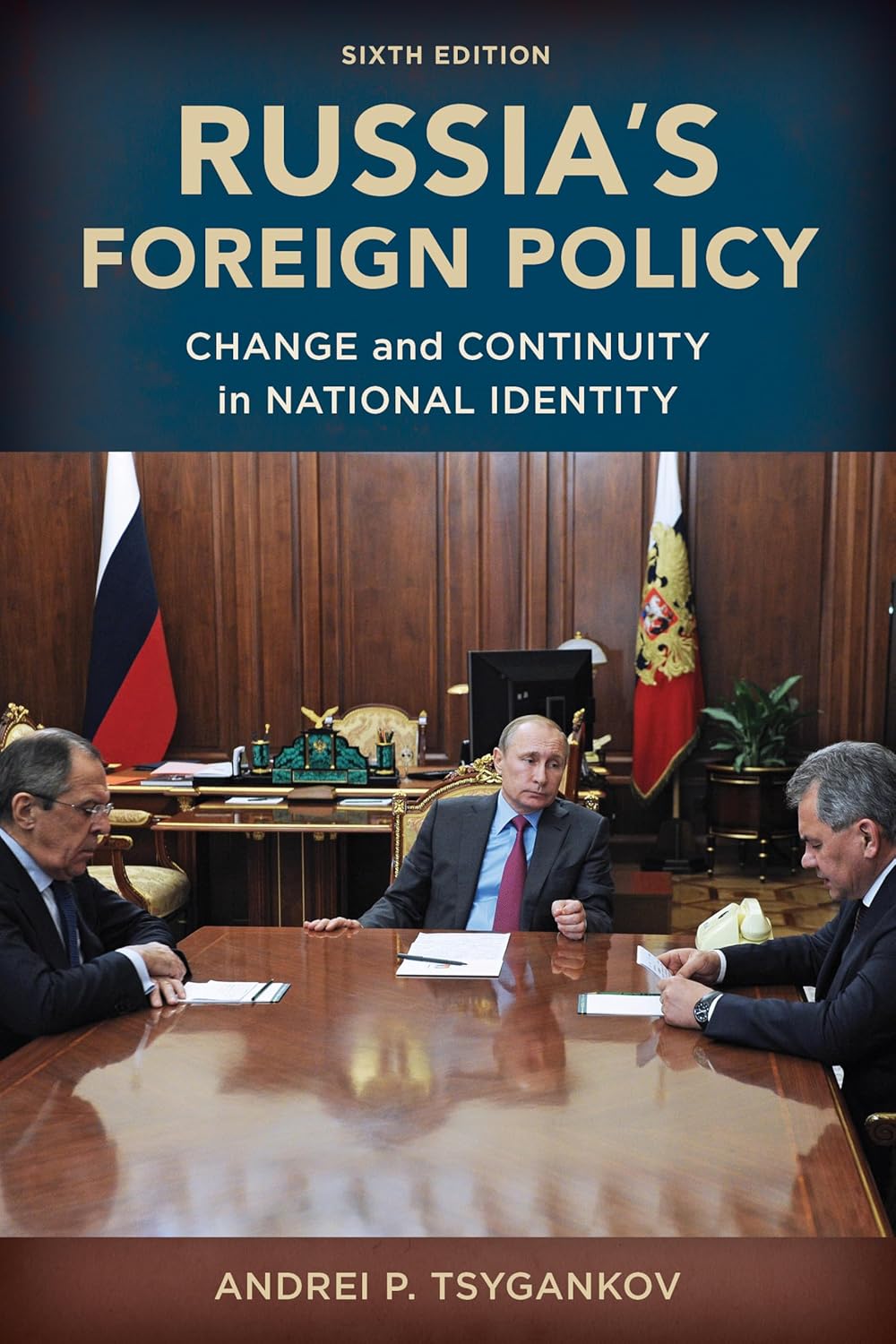
This book examines the evolution of Russia’s foreign policy through the lens of national identity. It argues that Russia’s actions on the global stage are shaped not just by strategic and economic factors but also by deeply ingrained cultural and ideological beliefs about Russia’s role in the world - which, in turn, have been significantly shaped by the history of the Soviet Union and the experience of the Cold War.
Andrei P. Tsygankov identifies three main traditions in Russian foreign policy -Westernist, Statist, and Civilizationist - each influencing how Russian leaders perceive their country’s relationship with the West and non-Western states.
If you're not reasonably well versed in political theory and the medium of contemporary foreign policy discussions / international relations it might be a challenging read at times, but definitely worth it.
The Sources of Russian Foreign Policy After the Cold War
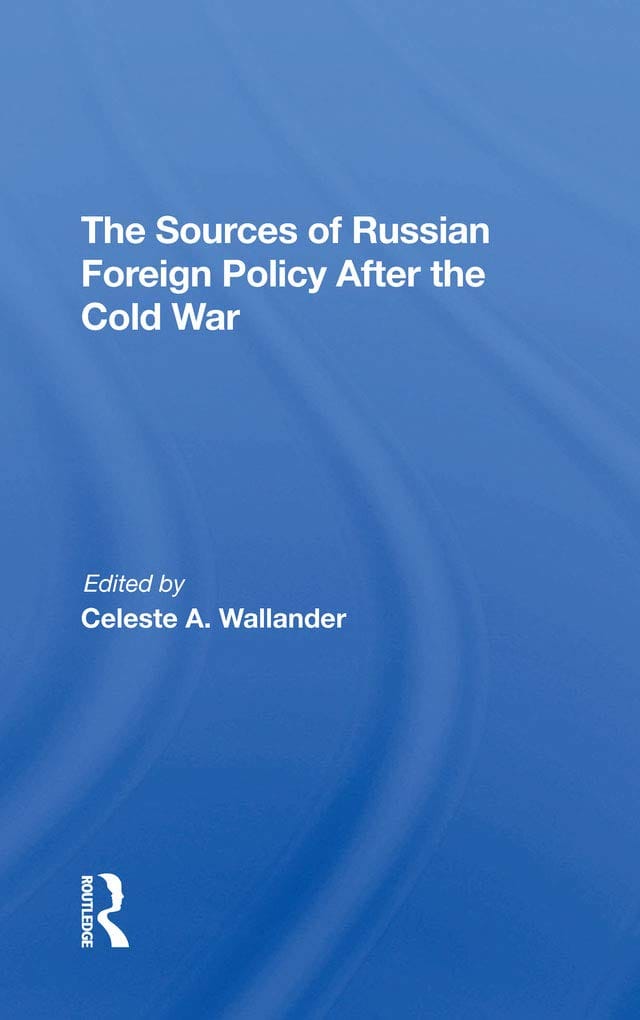
This book presents a detailed, multi-faceted analysis that goes beyond basic overviews of Russian foreign policy, helping readers understand the complexity of Russia’s foreign policy beyond simple geopolitical rivalries. By focusing on the underlying sources of Russian decision-making - such as domestic politics, economic constraints, and security concerns - it offers a rich and insightful examination for those looking to deepen their knowledge of Russia’s global strategy. Definitely not a bedside read.